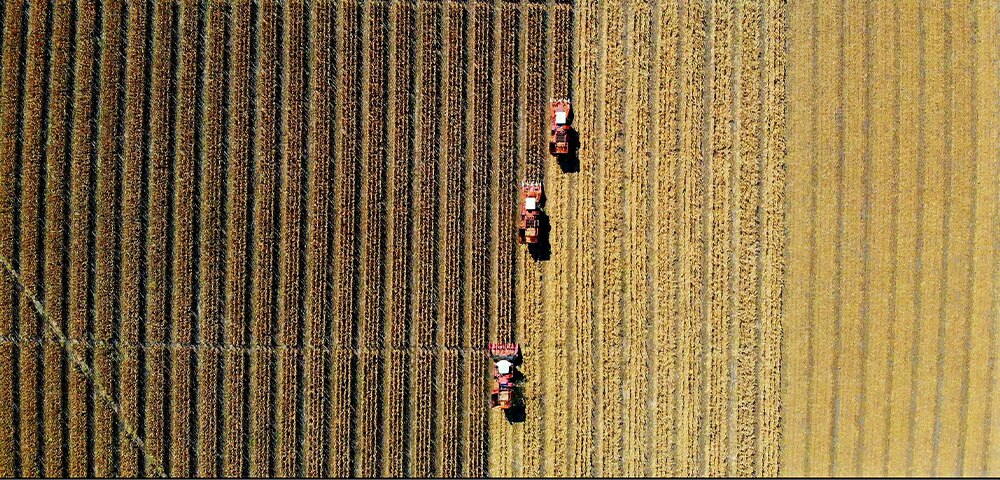Agribusiness at a crossroads: Navigating tariffs and tax cuts

The rollout of U.S. tariffs and new trade policies this year has presented tremendous challenges across industries, but maybe none more significantly than farmers and agricultural businesses. The U.S. has imposed levies on food products, farm equipment, animal feed, and even essentials like fertilizers — and other countries have responded with reciprocal tariffs on a wide range of popular U.S. crops, like wheat, corn, soybeans, and beef.
To provide relief from the tariffs and promote domestic growth, the recent reconciliation bill, commonly referred to as the One Big Beautiful Bill, included several tax benefits for farmers. Now, agricultural businesses are weighing the higher costs and economic uncertainty born from the tariffs with new growth opportunities provided by the tax cuts. It’s a fine balancing act, but the right financial strategy will give farmers a path forward to accomplish their business goals.
Tariffs drive doubt for farmers
The tariffs were first announced in April. Then, they were delayed until July to negotiate new trade deals, and then, in July, the deadline was once again pushed back to August to give the government more time to reach new trade agreements. In August, some deadlines were once again extended. While many trade negotiations have been successful, the volatile rollout of tariffs, changing rates, and unknown impact of potential price increases have caused crippling uncertainty for farmers and agribusinesses. It is still too early to tell if the tariffs will have a significant impact on pricing or demand, but the uncertainty is a consequence that has led to stalled business operations and difficult planning.
Farmers are optimistic that the tariffs will be a net positive for the economy in the long run. In Purdue University’s June agricultural survey, less than half of producers, about 45%, said they think tariffs will negatively impact their farm’s income this year. Most farmers expect the tariffs will have either no impact or a positive impact on farming. Still, there is some historical evidence that tariffs will lead to reduced demand.
A study from the U.S. Department of Agriculture found that retaliatory tariffs imposed in 2018 reduced agricultural exports by $27 billion and ultimately resulted in $3.8 billion in lost GDP in Iowa, Illinois, and Kansas, the three most impacted states. Despite positive sentiment, there is real reason for farmers to be concerned about the future impact of the tariffs. This cloud of uncertainty has made it difficult for farmers to make routine business decisions.
Reconciliation bill provides relief and growth opportunities
The current U.S. policy agenda has an outsized impact on farmers. While the tariffs are creating pricing and economic uncertainty, immigration policy is affecting access to labor. To help provide relief, the reconciliation bill passed in July delivers substantial tax benefits that can help curb rising costs and incentivize farmers to rely more on domestic sources for equipment and materials. The reconciliation bill invests $62 billion in the Farm Safety Net to expand Price Loss Coverage (PLC) and Agricultural Risk Coverage (ARC) support programs, among others. PLC protects farmers from losses if the commodities prices fall, and ARC helps farmers keep up with rapidly rising production costs through subsidies.
The reconciliation bill also provides business incentives that support farmers and other small businesses. Farmers can take advantage of the 100% bonus depreciation for equipment purchases; reduced tax burden on interest income for qualified loans; and death tax exemption relief, which increases the death tax exemption level to $15 million. Together, these benefits provide not only relief to farmers but an opportunity for growth and expansion. Although farmers navigate ongoing uncertainly, early sentiment among KeyBank’s agribusiness clients is optimistic.
Agribusinesses need a tailored response
The tariffs aren’t uniform. Every product and every trade partner has a different levy, and as a result, every producer or agribusiness will experience the impact of the tariffs differently. Some farmers may benefit from increased domestic demand, while others will face sharper challenges. As a result, there is also no single solution or response. Every agribusiness must develop a tailored strategy based on the impact of the specific tariff and the business’s individual goals.
The first step is connecting with your bank and capital provider to create a strategy that optimizes the new policies. KeyBank’s experts are closely tracking the evolving trade environment. KeyBank’s team understands the macro and microenvironment and the nuanced impact from the tariffs and other policy decisions — and they understand the resources available to agribusinesses to support growth and mitigate losses.
KeyBank can review different options and make appropriate recommendations tailored to a specific business profile. That may include increasing a line of credit or reviewing the financing structure to find opportunities for expansion. Specialized tools, like KeyBank’s tax lease loan product, would involve the bank buying equipment and leasing it back to the client at a reduced rate in exchange for the tax incentive. Whatever the approach, KeyBank’s professionals take a thoughtful approach to analyze specific business needs and curate the best path forward.
Farmers and other agribusinesses are known for their ability to withstand the unknown — whether a drought or an unexpected frost that harms crops or policy decisions that challenge business operations. To survive, farmers are nimble and keep a long-term outlook, and those characteristics will serve them well to navigate today’s challenges and capitalize on new opportunities.
For more information, visit key.com/agribusiness or contact an expert:
Jim McPhaul, Senior Relationship Manager, Commercial Agribusiness, KeyBank
Send an email
Mark Thomas, Regional Sales Director, Key Equipment Finance, KeyBank
Send an email
Recent Deals
See our latest transactions at key.com/deals.